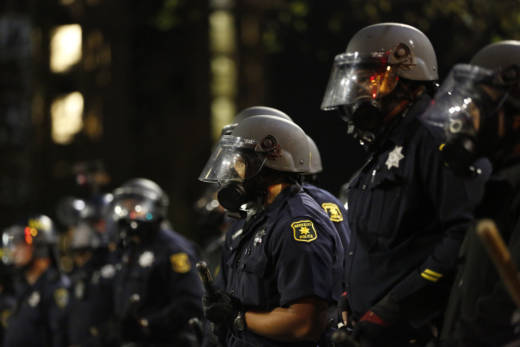"They have direct access and influence that regular people don't have," she said.
Take two bills her group supported this year. One would have required the attorney general to study officer-involved shootings; the other would have established statewide standards for how police departments handle body camera footage. Both were opposed by police groups -- both died last week.
Reforms Championed by Police Also Fail
But police groups say their legislation doesn't often fare any better -- and that the ACLU has plenty of power.
Peace Officers Research Association of California (PORAC) lobbyist Randy Perry represents the statewide police association made up of 70,000 officers. Perry said a bill PORAC wrote this year, to create a mediation programs for complaints of police bias, also died in the Legislature.
"Nothing’s getting through," he said. "Is the answer maybe we all need to get together and fix it together? (That) probably is the answer."
For now, the status quo will remain: The legislative session ends Friday. But if reform efforts continue to fail in the Legislature, it seems possible that at some point, voters could be asked to weigh in. Minsker believes that civil rights groups would have a much friendlier audience at the ballot box than at the state Capitol.
"When we do polls on police misconduct issues, the desire for transparency and accountability, the public strongly supports the view that they, as the people employing, police ... should have a right to know what police are doing," she said. "I am certain if we did put it before voters, there would be strong support for reform."
Recent history bears that out.
California voters have embraced sweeping criminal justice reforms, changing harsh sentencing laws like three strikes and legalizing marijuana -- mostly over the objections of law enforcement.
But as of now, there are no plans to mount an expensive, lengthy ballot measure campaign on any of these issues.
